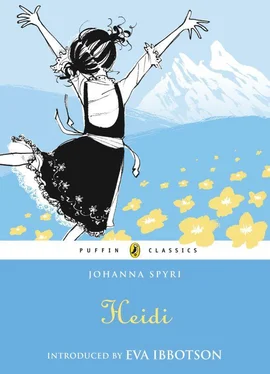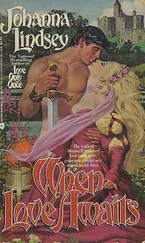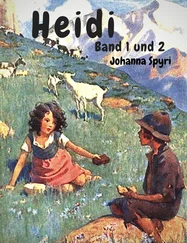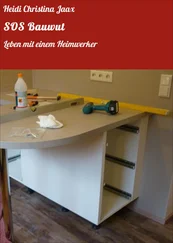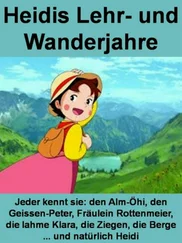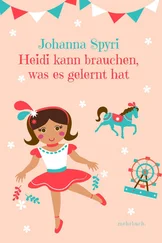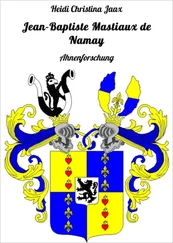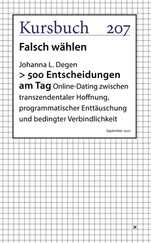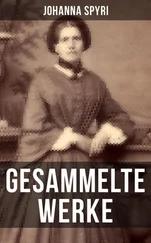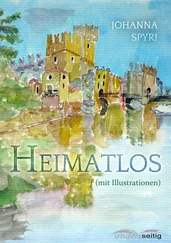Johanna Spyri - Heidi
Здесь есть возможность читать онлайн «Johanna Spyri - Heidi» — ознакомительный отрывок электронной книги совершенно бесплатно, а после прочтения отрывка купить полную версию. В некоторых случаях можно слушать аудио, скачать через торрент в формате fb2 и присутствует краткое содержание. Год выпуска: 2009, ISBN: 2009, Издательство: Penguin Books Ltd, Жанр: Детская проза, на английском языке. Описание произведения, (предисловие) а так же отзывы посетителей доступны на портале библиотеки ЛибКат.
- Название:Heidi
- Автор:
- Издательство:Penguin Books Ltd
- Жанр:
- Год:2009
- ISBN:9780141919010
- Рейтинг книги:2.5 / 5. Голосов: 2
-
Избранное:Добавить в избранное
- Отзывы:
-
Ваша оценка:
- 60
- 1
- 2
- 3
- 4
- 5
Heidi: краткое содержание, описание и аннотация
Предлагаем к чтению аннотацию, описание, краткое содержание или предисловие (зависит от того, что написал сам автор книги «Heidi»). Если вы не нашли необходимую информацию о книге — напишите в комментариях, мы постараемся отыскать её.
With a delightfully nostalgic introduction by award-winning author, Eva Ibbotson.
Heidi — читать онлайн ознакомительный отрывок
Ниже представлен текст книги, разбитый по страницам. Система сохранения места последней прочитанной страницы, позволяет с удобством читать онлайн бесплатно книгу «Heidi», без необходимости каждый раз заново искать на чём Вы остановились. Поставьте закладку, и сможете в любой момент перейти на страницу, на которой закончили чтение.
Интервал:
Закладка:
He couldn’t get up unless he let go of Finch’s leg which he was nearly pulling out of its socket already. Heidi saw at once what to do, and pulled up a handful of grass which she held under Finch’s nose.
‘Come on, don’t be silly,’ she said. ‘You don’t want to fall down there and hurt yourself.’
At that the little goat turned round and ate the grass from her hand, and Peter was able to get up. He took hold of the cord, on which a little bell was hung round Finch’s neck. Heidi took hold of it too, on the other side, and together they brought the runaway safely back to the herd. Then Peter took up his stick to give it a good beating, and seeing what was coming, Finch tried to get out of the way.
‘Don’t beat him,’ pleaded Heidi. ‘See how frightened he is.’
‘He deserves it,’ Peter replied, raising his arm, but she caught hold of him and exclaimed, ‘No, you’re not to! It will hurt him. Leave him alone!’ She looked at him so fiercely that he was astonished and dropped the stick.
‘I won’t beat him if you’ll give me some of your cheese again tomorrow,’ he said, feeling he ought to have some compensation after the fright the little goat had given him.
‘You can have it all, tomorrow and every day,’ promised Heidi, ‘I shan’t want it. And I’ll give you some of my bread as well, but then you must never beat Finch or Snowflake or any of them.’
‘It’s all the same to me,’ said Peter, which was his way of saying that he promised. He let Finch go and it bounded back to the herd.
It was getting late and the setting sun spread a wonderful golden glow over the grass and the flowers, and the high peaks shone and sparkled. Heidi sat for a while, quietly enjoying the beautiful scene, then all at once she jumped up, crying, ‘Peter, Peter! A fire, a fire! The mountains are on fire, and the snow and the sky too. Look, the trees and the rocks are all burning, even up there by the hawk’s nest. Everything’s on fire!’
‘It’s always like this in the evening,’ Peter said calmly, whittling away at his stick. ‘It’s not a fire.’
‘What is it then?’ she cried, rushing about to look at the wonderful sight from all sides. ‘What is it, Peter?’
‘It just happens,’ he said.
‘Oh, just see, the mountains have got all rosy red! Look at the one with the snow on it, and that one with the big rocks at the top. What are their names, Peter?’
‘Mountains don’t have names,’ he answered.
‘How pretty the rosy snow looks, and the red rocks. Oh dear,’ she added, after a pause, ‘now the colour’s going and everything’s turning grey. Oh, it’s all over.’ She sat down, looking as upset as if it was indeed the end of everything.
‘It’ll be the same again tomorrow,’ explained Peter. ‘Now it’s time to go home.’ He whistled and called the goats together and they started the downward journey.
‘Is it always like this up here?’ asked Heidi hopefully.
‘Usually.’
‘Will it really be the same tomorrow?’
‘Yes, it will,’ he assured her.
With this she was content and as she had so much to think about, she didn’t say another word till they reached the hut and saw her grandfather sitting under the fir trees, on the seat he had fixed there so that he could watch for the return of his animals. The little girl ran towards him, followed by Daisy and Dusky, and Peter called ‘Good night, Heidi. Come again tomorrow.’ She ran back to say goodbye and promised to go with him next day. Then she put her arms around Snowflake’s neck and said, ‘Sleep well, Snowflake. Remember I’ll be coming with you again tomorrow and you’re not to cry any more.’ Snowflake gave her a trusting look and scampered off after the other goats.
‘Oh, Grandfather,’ Heidi cried, as she ran back to him, ‘it was lovely up there, with all the flowers and then the fire and the rosy rocks. And see what I’ve brought you.’ She shook out the contents of her little apron in front of him, but the poor flowers had all faded and looked like so much hay. She was terribly upset.
‘What’s happened to them? They weren’t like that when I picked them.’
‘They wanted to stay in the sun and didn’t like being shut up in your apron,’ he explained.
‘Then I’ll never pick any more. Grandfather, why does the hawk croak so loudly?’
‘You go and jump in the washtub, while I milk the goats,’ he replied. ‘Then we’ll have supper together indoors and I’ll tell you about the hawk.’
As soon as Heidi was settled on her new high chair with her grandfather beside her and a mug of milk in front of her, she repeated her question.
‘He’s jeering at all the people who live in the villages down below and make trouble for one another. You can imagine he’s saying, “If only you would all mind your own business and climb up to the mountain tops as I do, you’d be a lot better off.”’ The old man spoke these words so fiercely that it really reminded Heidi of the croaking of the great bird.
‘Why haven’t mountains got names?’ she asked next. ‘But they have,’ he told her, ‘and if you can describe one to me so that I can recognize it, I’ll tell you its name.’
So she told him about the mountain with the twin peaks and described it very well. Her grandfather looked pleased. ‘That’s called Falkniss,’ he said. Then she described the one covered with snow and he told her its name was Scesaplana.
‘You enjoyed yourself, then?’ he asked.
‘Oh yes,’ she cried, and told him all the wonderful things that had happened during the day. ‘The fire in the evening was the best of all. Peter said it wasn’t a fire, but he couldn’t tell me what it really was. You can though, Grandfather, can’t you?’
‘It’s the sun’s way of saying goodnight to the mountains,’ he explained. ‘He spreads that beautiful light over them so that they won’t forget him till he comes back in the morning.’
Heidi liked this explanation very much, and longed for another day to begin so that she could go up and watch the sun’s goodnight again. But first she had to go to bed, and all night long she slept peacefully on her mattress of hay, dreaming of mountains and flowers and of Snowflake bounding happily about in the midst of it all.
4
A Visit to Grannie
All through that summer Heidi went up to the pasture every day with Peter and the goats, and grew brown as a berry in the mountain sunshine. She grew strong and healthy and was as happy and carefree as a bird in her new life. But when autumn came, strong winds began to blow, and her grandfather said to her, ‘Today you must stay at home. A little thing like you might easily get blown over the side of the mountain by a gust of wind.’
Peter was always very disappointed when Heidi could not go with him. He had grown so used to her company that he found it terribly dull to be by himself again, and of course he missed the good bread and cheese she always shared with him. The goats were twice as troublesome, too, when she was not there. They seemed to miss her and scattered all over the place, as though they were looking for her.
But Heidi was happy wherever she was. Of course she loved going up the mountain where there was always so much to see, but she also enjoyed going round with her grandfather, watching him at his carpentry and all the other jobs. She specially liked to see him make the goat’s milk cheese. He rolled up his sleeves and plunged his arms deep into a big pot of milk which he stirred thoroughly with his hands until in due course he produced the delicious round cheeses. But what she liked most of all was the noise the wind made in the old fir trees. She often left what she was doing to go and stand under them with her face turned up, listening and watching the swaying branches as the wind whistled and whirled through them. The wind blew right through her too, though now that the weather was cooler she wore socks and shoes and put on a dress once more. That strange music in the tree tops had a special fascination for her and she could not stay indoors when she heard it.
Читать дальшеИнтервал:
Закладка:
Похожие книги на «Heidi»
Представляем Вашему вниманию похожие книги на «Heidi» списком для выбора. Мы отобрали схожую по названию и смыслу литературу в надежде предоставить читателям больше вариантов отыскать новые, интересные, ещё непрочитанные произведения.
Обсуждение, отзывы о книге «Heidi» и просто собственные мнения читателей. Оставьте ваши комментарии, напишите, что Вы думаете о произведении, его смысле или главных героях. Укажите что конкретно понравилось, а что нет, и почему Вы так считаете.
